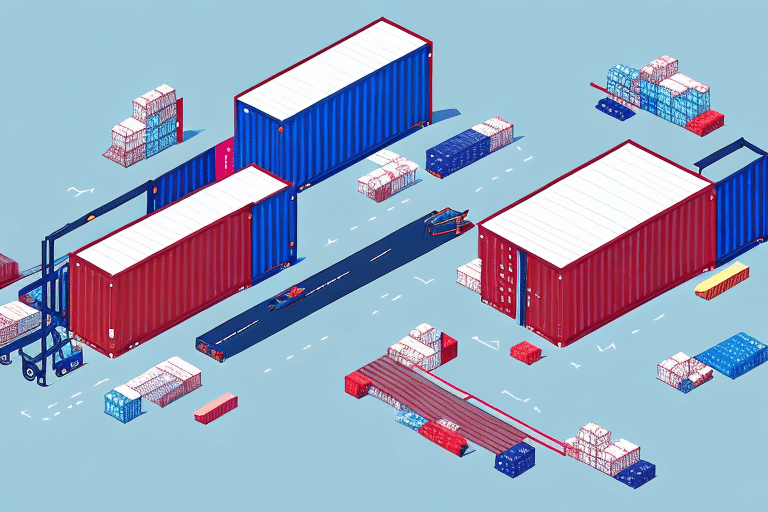Importance of Efficient Shipping for Your Business
In today's global market, shipping plays a crucial role in the success of any business. Efficient shipping can provide a competitive edge, while inefficient shipping can lead to customer dissatisfaction, decreased profitability, and harm your brand reputation. Customers expect their orders to arrive promptly and in good condition, and any delays or damages can negatively impact their experience and your brand's image.
Beyond customer satisfaction, efficient shipping directly affects your bottom line. By optimizing shipping processes, businesses can reduce costs related to transportation, packaging, and handling, leading to increased profitability and a stronger position in the industry. Additionally, streamlined shipping operations enhance overall productivity by automating tasks such as label printing and tracking, allowing businesses to allocate resources more effectively.
Cost Implications of Inefficient Shipping
Inefficient shipping practices can significantly increase operational costs. Poor packaging choices may result in damaged goods, leading to higher replacement costs and increased return rates. Shipping delays can also cause lost revenue opportunities and escalate customer support expenses.
Moreover, inefficiencies in shipping can tarnish your brand reputation. Consistently late deliveries, damaged products, and inadequate customer service can generate negative reviews and adverse word-of-mouth publicity, eroding customer trust and loyalty. To maintain a positive brand image and ensure financial health, it is essential to prioritize efficient shipping practices.
Selecting the Right Shipping Options and Carriers
Understanding Shipping Options
Before selecting a shipping carrier, it's important to comprehend the different shipping methods available:
- Ground Shipping: Most cost-effective but slower compared to other methods.
- Air Shipping: Fastest option but comes with higher costs.
- Freight Shipping: Best for large shipments, though may not be cost-effective for smaller packages.
When shipping internationally, consider carriers that specialize in international logistics and are adept at navigating customs regulations. Additionally, be aware of any carrier-specific restrictions on product types or destinations to ensure they align with your business needs.
Choosing the Right Shipping Carrier
Selecting a reliable shipping carrier involves evaluating several factors:
- Reputation and Reliability: Choose carriers known for timely deliveries and dependable service.
- Customer Service: A responsive customer service team can assist in resolving any shipping issues promptly.
- Tracking and Insurance: Comprehensive tracking and insurance options provide security and peace of mind for both you and your customers.
- Pricing and Rates: Ensure that the carrier's pricing structure aligns with your budget and shipping volumes.
Building a strong relationship with your chosen carrier can also lead to better shipping rates and service enhancements over time.
Optimizing Shipping Processes
Streamlining Operations
Optimizing your shipping process can lead to significant savings in both time and money. Consider automating repetitive tasks such as label printing and order tracking to reduce manual errors and increase efficiency. Implementing a standardized shipping checklist ensures consistency in packaging, labeling, and dispatching orders.
Negotiating Shipping Rates
Negotiating better shipping rates with carriers can substantially decrease your shipping expenses. Researching and comparing rates from multiple carriers provides leverage during negotiations. Additionally, consolidating shipments to the same destination can qualify you for bulk shipping discounts, further reducing costs.
Reducing Packaging Costs
Packaging constitutes a major component of shipping costs. To minimize expenses without compromising quality:
- Use the right-sized packaging to avoid excessive use of materials.
- Opt for eco-friendly materials, which can also enhance your brand's sustainability image.
- Implement packaging consolidation strategies, such as using single bags for multiple items.
These measures not only lower costs but also appeal to environmentally conscious consumers.
Enhancing Customer Service in Shipping
Effective Shipment Tracking
Providing customers with real-time tracking information enhances their confidence and satisfaction. Investing in robust shipping software can facilitate comprehensive tracking capabilities, ensuring customers are informed about their order status at every stage.
Handling Returns and Exchanges
Efficiently managing returns and exchanges is vital for maintaining customer trust. Implementing an automated online return system allows customers to easily initiate and track their return requests. Ensuring prompt inspections and processing of returned items minimizes delays and improves the overall customer experience.
Clear return policies and a user-friendly process encourage repeat business and foster long-term customer loyalty.
Advanced Strategies for Shipping Efficiency
Automating the Shipping Process
Automation plays a key role in enhancing shipping efficiency. By reducing manual data entry, businesses can minimize errors and streamline labeling and tracking processes. Automated systems also facilitate the analysis of shipping data, enabling businesses to make informed decisions and identify areas for improvement.
Leveraging Data Analytics
Utilizing data analytics allows businesses to optimize their shipping strategies by examining shipping times, carrier performance, and costs. Insights gained from data can highlight inefficiencies and guide strategic adjustments to improve overall shipping performance.
International Shipping Considerations
Expanding into international markets requires careful planning. Key considerations include:
- Customs Regulations: Understanding and complying with international customs laws is essential to avoid delays.
- Packaging for Durability: International shipments undergo more handling; thus, sturdy packaging is crucial to protect goods.
- Shipping Costs and Restrictions: Be aware of varying shipping costs and any carrier-specific restrictions on international shipments.
Effective communication with international customers and thorough knowledge of logistics can enhance the success of global shipping endeavors.
Conclusion
Efficient shipping is a cornerstone of successful business operations, impacting customer satisfaction, profitability, and brand reputation. By understanding shipping options, selecting the right carriers, optimizing processes, enhancing customer service, and implementing advanced strategies like automation and data analytics, businesses can achieve maximum shipping efficiency. Prioritizing these aspects will not only reduce costs but also foster customer loyalty and drive long-term growth.




















